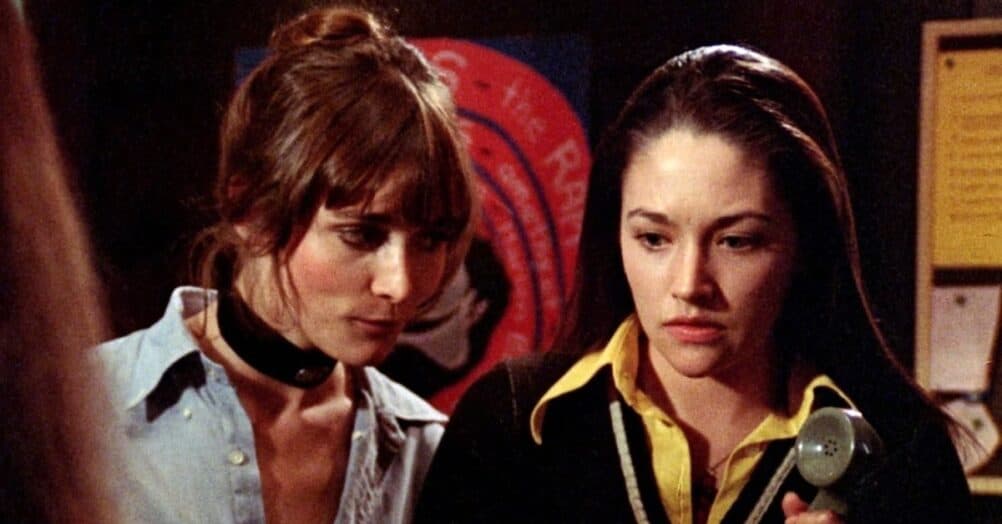
PLOT: A woman transitions from housewife to the owner of Triple Crown runner after her mother’s death and father’s deteriorating health forces her to take over the failing farm and its horses.
REVIEW: A heavy-handed recitation from the Bible, and SECRETARIAT begins…to lose my interest. I have nothing against religious texts, but SECRETARIAT shoots itself in the foot early on by adopting a gravitas that doesn’t suit it. While Diane Lane intones about the majesty of the horse and we’re treated to a race in slow-mo, a certain expectation is created: this is a serious and dramatic horse movie, all bets are off. Except, they’re not. And with each scene in SECRETARIAT it becomes more obvious that, while the story of Secretariat is an amazing tale of a horse at the top of his game, the story of his owner, Tweedy — at least as it’s told here — is just… not.

If Secretariat has one leg to stand on, it’s only because it can’t help but be based on facts. No one can deny that the down-to-the-line horse races are fun to watch, especially when archival footage is used, but beyond wowing over the lengths by which Secretariat won — 31 lengths to be precise — the movie fails to make them resonate with the audience because there’s no real investment over the wins and loses of Secretariat. Even as we’re told the horse has to win because Tweedy promised a Triple Crown winner to her investors, we have to take it on faith that that’s what’s important here. Not only is Tweedy’s character a shallow portrayal with token scenes of her former domesticity shoe-horned in, but the movie fails to show her connection with her father and the horse farm. A 30-second flashback in which the father taps little-Tweedy on the nose and talks about what it means to win doesn’t really make me care about either, or understand why the farm and her dad’s legacy is so important to her. If a movie can’t make me feel like the main character cares, why should I?
There’s one thing that Tweedy – no, star Diane Lane – seems to care about though. As she primps and poses, makes her pregnant pauses and feigns a steely-nature under fire, it seems like… acting. Nearly every scene Lane is in, seems to be her grasping desperately for an Oscar for her portrayal of a woman who, well, really didn’t have much to deal with anyway. The drama is forced with minor beats being fraught with a tension that doesn’t suit them or their place in the narrative. As for the real issues that Tweedy and the rest of the cast of characters likely had to deal with — sexism and racism — they are surprisingly glossed over. Occasionally a man will pop up in the film narrative and make a comment about Tweedy being a housewife rather than the head of a farm, and just as quickly Tweedy will shrug or make a measured comment in reply before another scenes takes its place.
Perhaps the other problem is that Tweedy, the real Tweedy, isn’t much of a character to begin with. While other historical figures and personas can be the center of the film thanks to their universally felt ordeals and their uniquely fascinating personalities, Tweedy didn’t, according to this film, have much to deal with. Anytime you think she’s about to confront sexism the movie pulls back its punch. Her arguments with her doubtful husband are even-tempered, short, and never followed up on, and the reenactments of her press conferences feature men smack-talking Tweedy and her demurely responding. Not exactly the stuff of riveting drama. (Note: After some initial research it seems that Tweedy didn’t even have press conferences before races.)

The true star of this film is, and should be the amazing SECRETARIAT, but, let’s face it, he’s a horse. Beyond a few puzzling horse-cam moments, wherein Secretariat seems to be smack-talking his competition, the horse exists almost on the fringe of this movie. And if you’re holding out hope that Malkovitch playing eccentric horse trainer Lucien Laurin will save the film, he’s not around nearly enough to help and, unfortunately, phones in much of his performance. As for Eddie Sweat, aka Nelsan Ellis of “True Blood,” initial excitement over his appearance will give way to disappointment, as he is shunted to the side, and made to function as the horrendous Magical Negro cliche, minus any of the magic. While quick research shows us that Sweat was an interesting and integral part of Secretariat and other horses’ wins — with several articles, TV interviews, and magazine covers dedicated to Sweat and an entire book about his work — SECRETARIAT boils him down to the guy cleans out Secretariat’s abcess, sleeps next to Secretariat, and shouts to the empty Kentucky air that Secretariat — to paraphrase lightly — “done eat all his breakfast.”
And, contrary to the film, he originally worked for Laurin and not the Chenery farm. (This is important because the movie makes it seem like Tweedy sort of came to his rescue by firing a dishonest trainer who was incidentally mean to Sweat, as well.) Heck, the movie even glosses over the his importance in the epilogue by simply saying that Sweat spent more time with Secretariat than anyone else.
While some will argue that it’s “Just a Disney film” and “Clearly meant for kids” that doesn’t mean these criticisms don’t hold up. The paper-thin plot will do little to hold anyone’s attention and the more adult-skewed subplot about Tweedy dealing with motherhood vs. independent womenhood are too subtly handled (read: nothing happens) to make it resonate it with kids. SECRETARIAT isn’t a terrible film, but it is a poorly made one.

















Follow the JOBLO MOVIE NETWORK
Follow us on YOUTUBE
Follow ARROW IN THE HEAD
Follow AITH on YOUTUBE